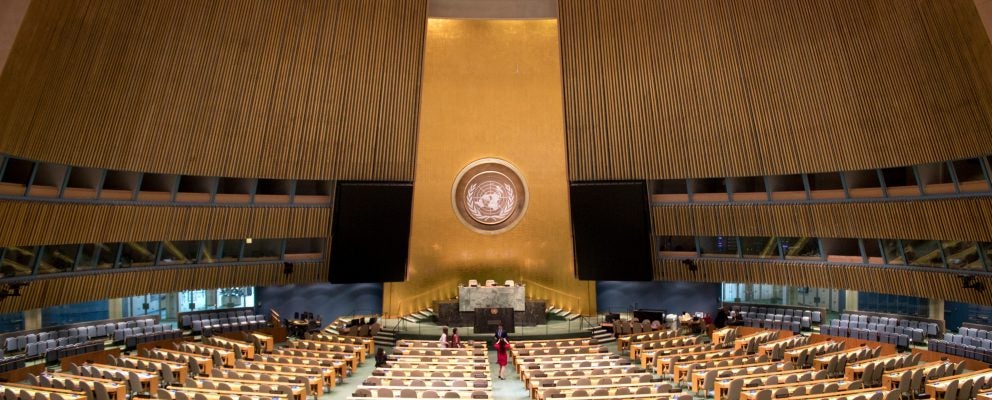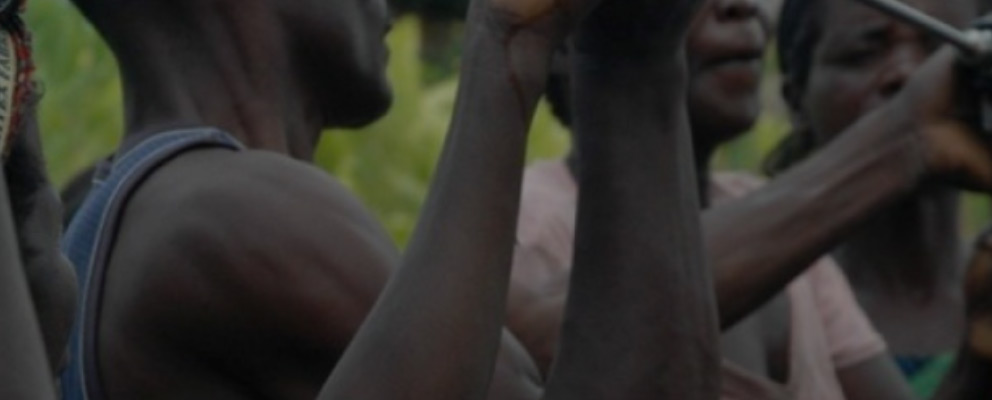
How to make $5 trillion per year
In April 2018, EWB sent its first-ever delegation to the United Nations for the Financing for Development (FfD) Forum in New York! Now we get to tell you about our experience: what happened, what we learned, and what we’ll do next.
Let’s jump in.
What was the FfD Forum all about?
In 2015, the world agreed upon the Sustainable Development Goals (SDGs), 17 ambitious goals to end global poverty, protect the planet, and ensure prosperity for all by 2030. These goals are aspirational, interconnected, and universal, encompassing everything from peace and security, to improving health, education and gender equality, to addressing climate change.
Unsurprisingly, this bold plan comes with a hefty (and slightly ambiguous) price tag: several trillions of dollars per year. This is why UN member countries signed on to the Addis Ababa Action Agenda (AAAA), a plan to finance the SDGs, at the same time.
Since then, UN members have met each year at the FfD Forum to monitor progress and revisit the processes and practices outlined in the AAAA. It brings together governments, multilateral institutions (including the World Trade Organization, World Bank, and International Monetary Fund), leaders from the private sector, and representatives from civil society organizations (like yours truly!) from around the world to share lessons learned, current challenges, and new ideas on how to finance, and ultimately achieve, the SDGs.
Why were we there and what did we learn?
There are many ways to create change. Historically, EWB’s policy and advocacy work has focussed on Canada’s domestic international development policies, practices, and budgeting – and it will continue to. But Canada can also play a leadership role in global forums, such as the UN, by shaping conversations and norms, and working collaboratively to solve global economic, development and other challenges. This is potential EWB is interested in exploring.
Given EWB’s past campaigns supporting the creation of a development finance institute and our current work on innovative development and financing, the FfD Forum was a natural first step into multilateral policymaking. We went to find out more about the global conversation on development finance, identify key players, learn about the challenges and potential solutions, hear about new trends and innovations, make connections, build our team’s capacity, and use our learnings to bolster EWB’s policy and advocacy strategy – and we learned a lot!
Three of the biggest takeaways were:
- Private sector investment is needed to reach the SDGs, but comes with a variety of challenges. The price tag for the SDGs is in the trillions of dollars and it is estimated that there’s a $5 trillion shortfall each year. While donor countries, including Canada, see private sector investment – that is, contributions from banks, investment firms, pension funds, corporations and big businesses – as a potential supplement to traditional country-to-country development assistance that could help close the gap, many developing countries caution that private sector actors are too risk averse to invest in countries that need it most (including countries that are least developed, conflict-affected, or most vulnerable to climate change), there are sectors that could be negatively impacted by private investment or privatization (for example, healthcare and education), and private investment must align with national priorities and development strategies without compromising countries’ sovereignty. While private sector actors may be interested in helping to improve global development, their expectations can be mismatched with countries’ capabilities and needs, so this complex conversation is ongoing.
(Learn how the for-profit businesses EWB supports are creating positive social change in their communities.) - Technology and innovation are allowing countries to “leapfrog ahead” in their development, but also have the potential to create significant setbacks. For example, mobile banking is dramatically improving access to finance, but automation is eliminating valuable jobs at a time when sub-Saharan Africa’s population and demand for jobs is growing. To summarize one panel, we are on the cusp of a technological revolution and these revolutions are not benevolent – there must be social safety nets in place to support those who are in danger of being left behind and there is a need to shape the future of work through public policy, skills development programs, and lifelong learning opportunities.
(Here’s how EWB is responding to this need by investing in social entrepreneurs and globally-minded leaders in Canada and Africa.) - Canada has the potential to lead on innovative development, but will need to walk the talk. In its country statement, Canada recognized the importance of both official development assistance (ODA) and new private or blended sources of development financing. Canada recently committed $2 billion over 5 years in ODA and $1.5 in innovative finance, in addition to the $300 million being channeled through its development finance institute, FinDev Canada; however, this falls short of other donor countries. Canada also stated that the role of government was to reduce risks for private investment through public policy and other government efforts and that innovation must work for everyone, particularly youth and women. This attention to innovation, gender and diversity are where Canada has an opportunity to model best practices at home, and to shape priorities, practices, and initiatives abroad – but it will need to back these words up with dollars and action to truly lead.
(We’re asking Canada to do more to achieve the SDGs through innovative development practices and financing – here’s how to get involved!)
Ultimately, the FfD Forum demonstrated a global commitment to achieving the SDGs through innovation and new approaches to development financing, but it’s unclear if current efforts will be enough to fill the SDG funding gap.
What’s next for EWB at the UN?
Each July, progress toward the SDGs is measured during the High Level Political Forum (HLPF) as countries present Voluntary National Reviews (Canada in presenting this summer) and this year we’ll be there to take part!
We’re planning to continue to stretch and build our multilateral policy and advocacy muscle by sending a delegation to attend sessions, engage in side events hosted by civil society organizations and country delegations, and to meet with existing and potential partners.
We’re also working to integrate our learnings into our strategy and plans for the years ahead, and expect to have more opportunities for engagement, particularly for our community of youth leaders, in future, so stay tuned!
Want to say hello to a world without poverty?
Working toward the SDGs – toward a world without poverty, that is sustainable and ensures prosperity for all – is the most ambitious project in the history of humankind. We’re committed to helping achieve it – are you? Join our #Hello2030 campaign to take action!
